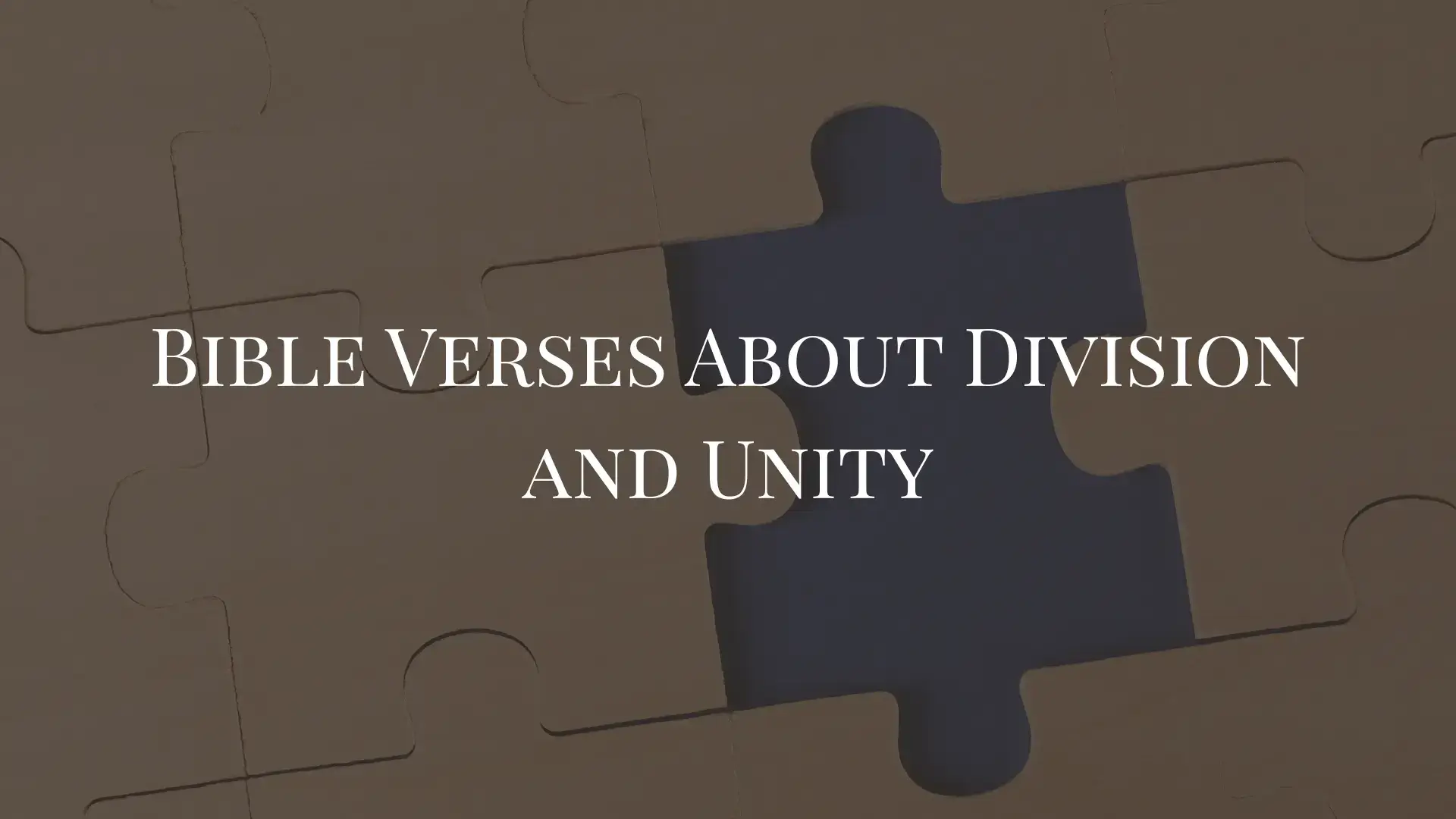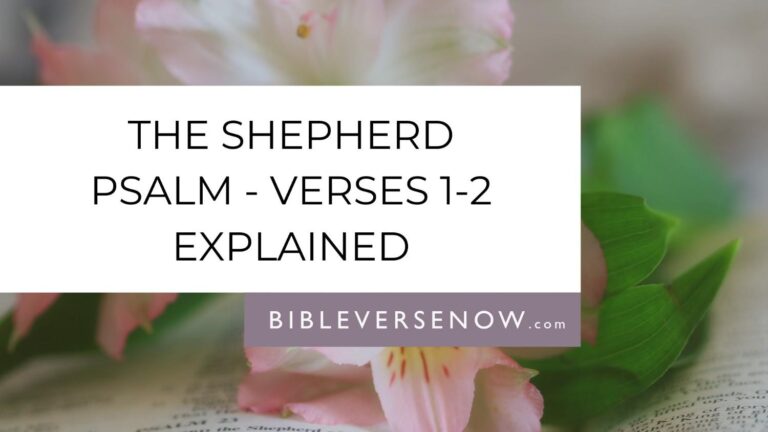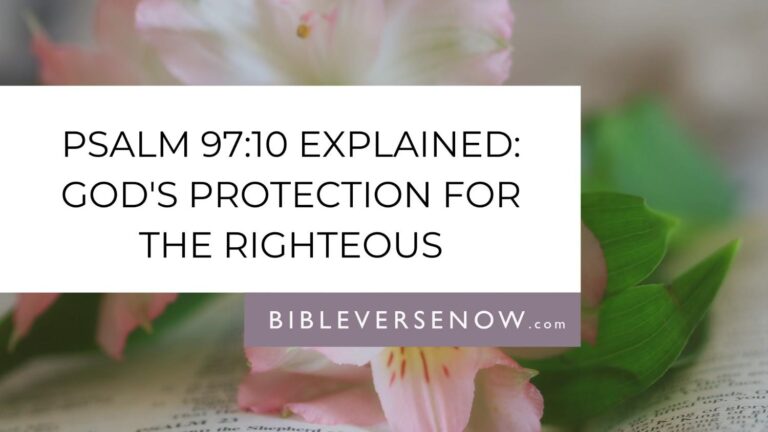Division hurts. Whether it’s families torn apart by disagreements, churches split by conflict, or communities fractured by misunderstanding, the pain of broken relationships cuts deep into our hearts. You’ve likely felt this sting yourself—watching unity crumble in places where love should flourish. Yet God’s Word offers both comfort for the wounded and wisdom for restoration. These Bible verses about division and unity reveal God’s heart for harmony and provide practical guidance for healing fractured relationships. Scripture consistently calls us toward reconciliation, forgiveness, and the kind of love that builds bridges instead of walls.
What the Bible Says About Division in Relationships
Division often begins in our most intimate circles before spreading outward. Scripture doesn’t shy away from addressing the reality of broken relationships, offering both warning and hope.
“Every kingdom divided against itself will be ruined, and every city or household divided against itself will not stand.” (Matthew 12:25)
Jesus spoke these words in response to accusations from religious leaders, but the principle applies universally. Division destroys from within, whether in marriages, families, or communities. The Greek word for “divided” here means “to separate” or “to be at variance”—suggesting ongoing conflict rather than healthy disagreement.
“But if you bite and devour each other, watch out or you will be destroyed by each other.” (Galatians 5:15)
Paul’s vivid imagery captures how destructive words and actions can consume relationships. When we attack rather than address issues with love, we risk destroying what God intended to flourish. This verse follows Paul’s teaching about walking in the Spirit, suggesting that unity requires supernatural grace.
“I appeal to you, brothers and sisters, in the name of our Lord Jesus Christ, that all of you agree with one another in what you say and that there be no divisions among you, but that you be perfectly united in mind and thought.” (1 Corinthians 1:10)
Paul addressed a church fractured by favoritism and competing loyalties. His solution wasn’t forced agreement but unity centered on Christ. The phrase “perfectly united” uses a Greek term meaning “to restore” or “to mend”—like repairing torn fishing nets.
Bible Verses About Unity in Marriage and Family
God designed the family as the foundational unit of society, making unity within these relationships crucial for broader harmony.
“Therefore what God has joined together, let no one separate.” (Mark 10:9)
Marriage represents God’s desire for permanent unity between two people. This verse appears in Jesus’ teaching about divorce, emphasizing that God’s intention is always toward unity and reconciliation rather than separation.
“How good and pleasant it is when God’s people live together in unity!” (Psalm 133:1)
David’s psalm celebrates the beauty of harmonious relationships. The Hebrew word for “good” (tov) implies moral excellence, while “pleasant” (na’im) suggests delight and sweetness. Unity isn’t just practical—it’s beautiful to God.
“Above all, love each other deeply, because love covers over a multitude of sins.” (1 Peter 4:8)
Peter understood that lasting unity requires grace. The word “deeply” means “stretched” or “earnest”—suggesting love that goes beyond surface level to cover offenses that might otherwise divide.
“Be completely humble and gentle; be patient, bearing with one another in love.” (Ephesians 4:2)
Paul lists four essential attitudes for unity: humility (thinking of others before yourself), gentleness (strength under control), patience (enduring difficult people), and bearing with one another (literally “holding up under” someone’s weaknesses).
Bible Verses for Healing Division in Churches
Church conflict grieves God’s heart because it contradicts the very message we proclaim. These verses offer guidance for restoration.
“Make every effort to keep the unity of the Spirit through the bond of peace.” (Ephesians 4:3)
Unity doesn’t happen accidentally—it requires intentional effort. The Greek word for “effort” (spoudazo) means “to be zealous” or “to give diligence.” We must work as hard for unity as we do for anything else we value.
“If your brother or sister sins, go and point out their fault, just between the two of you. If they listen to you, you have won them over.” (Matthew 18:15)
Jesus provides a clear process for addressing division. The goal isn’t winning an argument but “winning” your brother or sister—restoring relationship through grace-filled confrontation.
“All of you, be like-minded, be sympathetic, love one another, be compassionate and humble.” (1 Peter 3:8)
Peter calls for five attitudes that foster unity: like-mindedness (shared values), sympathy (understanding others’ perspectives), love (choosing others’ good), compassion (tender-heartedness), and humility (considering others better than yourself).
“If we walk in the light, as he is in the light, we have fellowship with one another, and the blood of Jesus, his Son, purifies us from all sin.” (1 John 1:7)
Fellowship (koinonia) means “sharing in common” or “partnership.” True unity comes through walking in God’s light together, allowing His truth to expose and cleanse what divides us.
Bible Verses About Unity Among Believers
The church is meant to display God’s love to a watching world. These verses show what unity looks like in action.
“There is neither Jew nor Gentile, neither slave nor free, nor is there male and female, for you are all one in Christ Jesus.” (Galatians 3:28)
Paul addresses three major divisions of his time—ethnic, social, and gender—declaring that Christ transcends all human categories. Unity doesn’t erase our differences but subordinates them to our shared identity in Christ.
“May the God who gives endurance and encouragement give you the same attitude of mind toward each other that Christ Jesus had.” (Romans 15:5)
Unity flows from having “the same attitude of mind” (literally “to think the same thing”). This doesn’t mean identical opinions but shared values and priorities centered on Christ’s example.
“By this everyone will know that you are my disciples, if you love one another.” (John 13:35)
Jesus made love the distinguishing mark of His followers. The world watches how we treat each other, and our unity (or lack thereof) either validates or undermines our message about God’s love.
“As iron sharpens iron, so one person sharpens another.” (Proverbs 27:17)
Healthy relationships involve friction that produces growth. This verse suggests that unity doesn’t mean avoiding all conflict but engaging in ways that strengthen rather than destroy.
Bible Verses About Overcoming Division With Love
Love provides the foundation and fuel for lasting unity. These verses show how love conquers division.
“And over all these virtues put on love, which binds them all together in perfect unity.” (Colossians 3:14)
Paul pictures love as the outer garment that holds all other virtues together. Without love, even good qualities can become sources of pride and division.
“Be kind and compassionate to one another, forgiving each other, just as in Christ God forgave you.” (Ephesians 4:32)
Forgiveness breaks the cycle of hurt that perpetuates division. The word “forgiving” (charizomai) is related to “grace” (charis)—we forgive because we’ve been forgiven.
“Do nothing out of selfish ambition or vain conceit. Rather, in humility value others above yourselves.” (Philippians 2:3)
Selfishness and pride fuel division, while humility builds unity. Valuing others above yourself doesn’t mean thinking less of yourself but thinking of yourself less.
“Hatred stirs up conflict, but love covers over all wrongs.” (Proverbs 10:12)
This proverb contrasts hatred’s divisive power with love’s healing capacity. Love doesn’t ignore wrongdoing but chooses to cover it with grace rather than expose it in anger.
Prayers for Unity and Healing Division
Prayer aligns our hearts with God’s desire for unity and releases His power to heal broken relationships.
Prayer for Family Unity
Heavenly Father, You designed our families to reflect Your love and unity. We confess that we’ve allowed pride, misunderstanding, and hurt feelings to create walls between us. Soften our hearts toward one another. Help us choose forgiveness over resentment, grace over judgment, and love over being right. Heal the wounds that divide us and restore the joy of relationship. May our home be a place where Your peace reigns and Your love is evident to all who enter. In Jesus’ name, Amen.
Prayer for Church Unity
Dear Lord, You prayed that we would be one as You and the Father are one. We grieve when division enters Your church, causing pain and weakening our witness. Unite our hearts around Your truth and Your love. Help us to lay down personal preferences for the sake of Your kingdom. Give our leaders wisdom to guide us through conflict with grace and truth. May our love for one another be so evident that the world sees You in us. Restore what has been broken and make us a beacon of hope in our community. In Jesus’ name, Amen.
Prayer for Personal Reconciliation
God, You know the hurt I carry from broken relationships. Some wounds feel too deep to heal, and some people seem impossible to forgive. But I know that nothing is impossible with You. Change my heart first—help me see where I’ve contributed to division and give me courage to seek forgiveness where needed. If reconciliation is possible, open doors and soften hearts. If it’s not, help me release the bitterness and trust You with justice. Fill the empty spaces in my heart with Your love, and use my experience to help others find healing. In Jesus’ name, Amen.
How to Apply These Bible Verses About Unity
Scripture comes alive when we apply it practically to our daily relationships and conflicts.
Start with self-examination. Before addressing division with others, ask God to reveal your own contributions to conflict. Pride often blinds us to our faults while magnifying others’ mistakes. Humble confession opens the door to restoration.
Choose your words carefully. Proverbs 15:1 reminds us that “a gentle answer turns away wrath, but a harsh word stirs up anger.” When addressing conflict, speak truth wrapped in love, focusing on specific behaviors rather than character attacks.
Seek understanding before seeking to be understood. Listen actively to others’ perspectives, even when you disagree. Often, what appears as stubbornness is actually hurt or fear that needs addressing with compassion.
Practice forgiveness as a choice, not a feeling. Forgiveness is a decision to release your right to revenge and trust God with justice. Feelings may follow, but the choice comes first.
Take initiative in reconciliation. Don’t wait for the other person to make the first move. Romans 12:18 says, “If it is possible, as far as it depends on you, live at peace with everyone.”
God’s Ultimate Plan for Unity
Throughout Scripture, God reveals His heart for unity that extends far beyond human relationships to encompass all of creation.
“His intent was that now, through the church, the manifold wisdom of God should be made known to the rulers and authorities in the heavenly realms.” (Ephesians 3:10)
The church’s unity serves as a testimony to spiritual powers about God’s wisdom and love. When believers from different backgrounds worship together in harmony, it displays God’s power to reconcile all things.
“And he made known to us the mystery of his will according to his good pleasure, which he purposed in Christ, to bring unity to all things in heaven and on earth under Christ.” (Ephesians 1:9-10)
God’s ultimate plan involves bringing all creation into unity under Christ’s lordship. Our efforts toward unity participate in this cosmic purpose, making every act of reconciliation eternally significant.
Division grieves God’s heart because it contradicts His nature and purpose. Yet these Bible verses about division and unity offer hope that what seems broken beyond repair can be restored through God’s grace. Whether you’re facing division in your marriage, family, church, or community, God’s Word provides both comfort for your pain and guidance for healing. Unity isn’t achieved through human effort alone but through surrendering to God’s Spirit, who specializes in making all things new. As you meditate on these verses and apply their truths, may you experience the peace that comes from restored relationships and the joy of living in harmony with God’s heart for His people.




